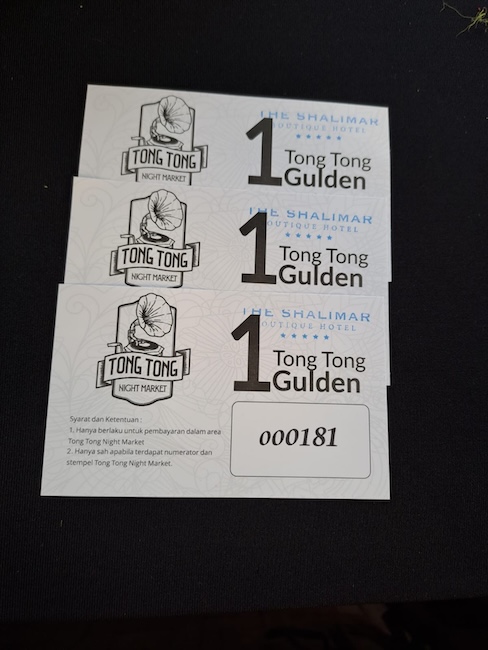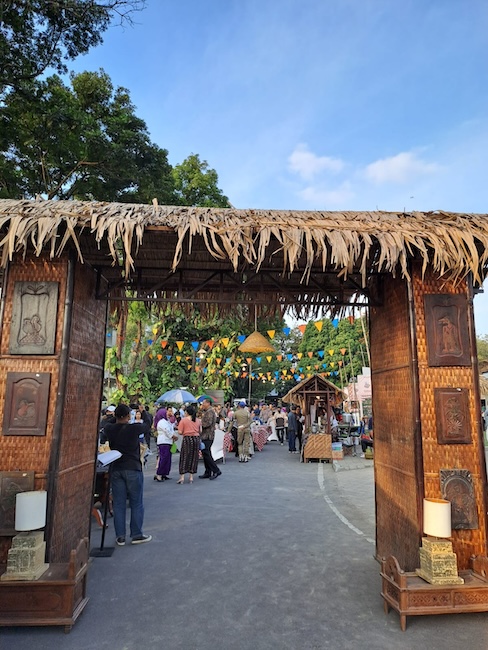Despite more critical attention being paid to Indonesia’s colonial past there is also evidence of nostalgia
Grace Leksana
On 11 July 2023, the Dutch government returned to Indonesia, 472 collections of historical objects that had been housed in various Dutch museums. This was the culmination of a two-year collaboration between the countries to confront a difficult past. All the objects being returned had ended up in The Netherlands due to forced transfers, or in extreme terms, they were looted and pillaged from various parts of the archipelago. The repatriation of the objects demonstrates in concrete terms, how the two countries interpret decolonisation efforts – an approach that deconstructs power relations stemming from colonialism. Indonesia and The Netherlands work together on an equal footing to preserve aspects of Indonesia’s past. Besides the return of these items, the cooperation also involves research and a deep commitment to understand the history of these objects.
Later that month, as these objects were being ceremonially repatriated from The Netherlands, in Malang, East Java, the Tong-Tong Night Market was celebrating its opening night. The market was organised by the Shalimar Boutique Hotel and supported by the Malang City government. The mayor of Malang, Sutiadji, accompanied by his wife, performed the ceremonial duties. The market included several stands offering various cuisines, ranging from typical East Javanese food like kupang keraton, lontong balap and bakso Malang, to European-influenced foods like poffertjes, Dutch small pancakes. Several small and medium-sized enterprises (SMEs) used the market to showcase their products. In his speech, Mayor Sutiadji emphasised that Malang’s local economy had grown over the last decade and highlighted the crucial role of SMEs in the city’s tourism sector. Shalimar Hotel and the supporting tourism industry represent essential elements of the city’s economy.
Colonial ‘heritage’ in the night market
At Tong-Tong Night Market history is presented as heritage, that is, remnants of the past that continue to exist around us. Icons of heritage were scattered throughout the market: traditional snacks; a corner for traditional games; a performer on stilts; a band wearing traditional attire and Javanese headwear, and two antique cars exhibited in the middle of the park behind barriers. Remarkably for this event, visitors had to make transactions using ‘gulden’ vouchers. The gulden, or guilder in English, was the currency used in the Dutch East Indies. In the night market, one gulden was valued at Rp.8000 (approximately A$0.80). The market did not accept transactions in rupiah, only in gulden. The organisers referred to this use of heritage as an effort to ‘return to the past’.

But which past, exactly?
Why, on the one hand, was the Indonesian government cooperating with the Dutch government to confront the dark colonial past by returning looted items, while on the other hand an Indonesian city was reverting to the use of gulden in the name of heritage?
The Shalimar Boutique Hotel itself was officially designated a cultural heritage building in 2022. Built around the 1930s, it was formerly a Sociëteit venue, a recreation club for European elites. The building was also used as a Freemason headquarters before becoming a temporary detention centre during the Japanese occupation. After independence it was used as the Malang headquarters for Indonesian Republican Radio. In 1993, the property was acquired by Cakra Nur Lestari, which initially established Hotel Malang Inn, later becoming Graha Cakra. In 2015, the hotel was rebranded as the Shalimar Boutique Hotel.
It is no accident that the Tong-Tong Night Market was held directly in front of this designated heritage building. The festival’s mission is to highlight Malang’s ‘heritage’ and revive the colonial past. It is also no coincidence that it resembles the annual Tong-Tong Fair organised by the Indo-European community in the Netherlands. Established in 1959 and held in The Hague, the Tong-Tong Fair (previously called Pasar Malam Besar), attracts more than 100,000 visitors. The Indo-European festival has been criticised for presenting colonial nostalgia through cuisine, music, dance and various cultures without addressing any aspects of colonialism’s dark side. Nonetheless, both festivals, both in Malang and The Hague, seem reluctant to talk about how nostalgia for ‘Indische’ culture was created through continuous repression and exclusion of Indonesians.
Practices of forgetting in the night market
The designated heritage building of the former Sociëteit, now home to The Shalimar Boutique Hotel, is not remembered for the labourers who built it, but for the European architect, Mulder, who designed it. The Europeans who enjoyed recreation in the Sociëteit building are noted, while the labourers in the Agung Plantation in Malang Regency, who supplied sugar for the tea, coffee, and cakes of the Sociëteit, are not remembered.

Farmers, labourers, and former guerrillas have different memories of the colonial era; and these are not just of street snacks, old music, or traditional games. Starvation, katul (a root crop), tiwul (cassava-based food), weapons, gambling and daily wages featured in the lives of Indonesians who also experienced the colonial era. Our efforts to remember the past tend to be selective; we want to remember certain things but are reluctant to remember others. Combined with tourism and regional economic income, ‘heritage’ becomes selective. In his study of colonial architecture Freek Colombijn (2022) shows us that the utilisation of colonial heritage is a selective process. Those dealing with colonial remnants operate as scavengers; searching for remnants, looking at archives and oral sources, choosing what is useful and discarding what is not. In this context, colonial heritage is directed towards enhancing the tourism industry and the city’s income. Perhaps it is no surprise that we are now faced with events that embrace the reproduction of gulden but neglect the history of the labourers and farmers who were the backbone of the economy, and therefore the gulden, in the colonial period.
Some might argue that there is no use in remembering bad things. Dark times will surely make tourists flee. Surely no one would want to come to Malang anymore if what’s discussed is discrimination and the exploitation of Indonesians. This is not entirely accurate. In several cities worldwide, dark history forms part of a tourist trail. An extreme example is the genocide museum in Cambodia. Another example includes city tours in the Netherlands based on the history of slavery or the history of Syrian migrants. Such ‘sinister’ stories form part of lessons from the past and are not something taboo. Indeed, when we don't discuss or display them, we create an illusion that our past was ‘just fine’. Or in other words, that colonialism was just fine. History is chosen for specific purposes; using some aspects and discarding others. However, we have a choice, whether to perpetuate this selectivity or to challenge it.
Grace Leksana (g.leksana@uu.nl.) is an Assistant Professor in the history department at Utrecht University. This article was originally published in Indonesian as ‘Ketika kelas menengah Indonesia mengingat kolonialisme, Historia.












